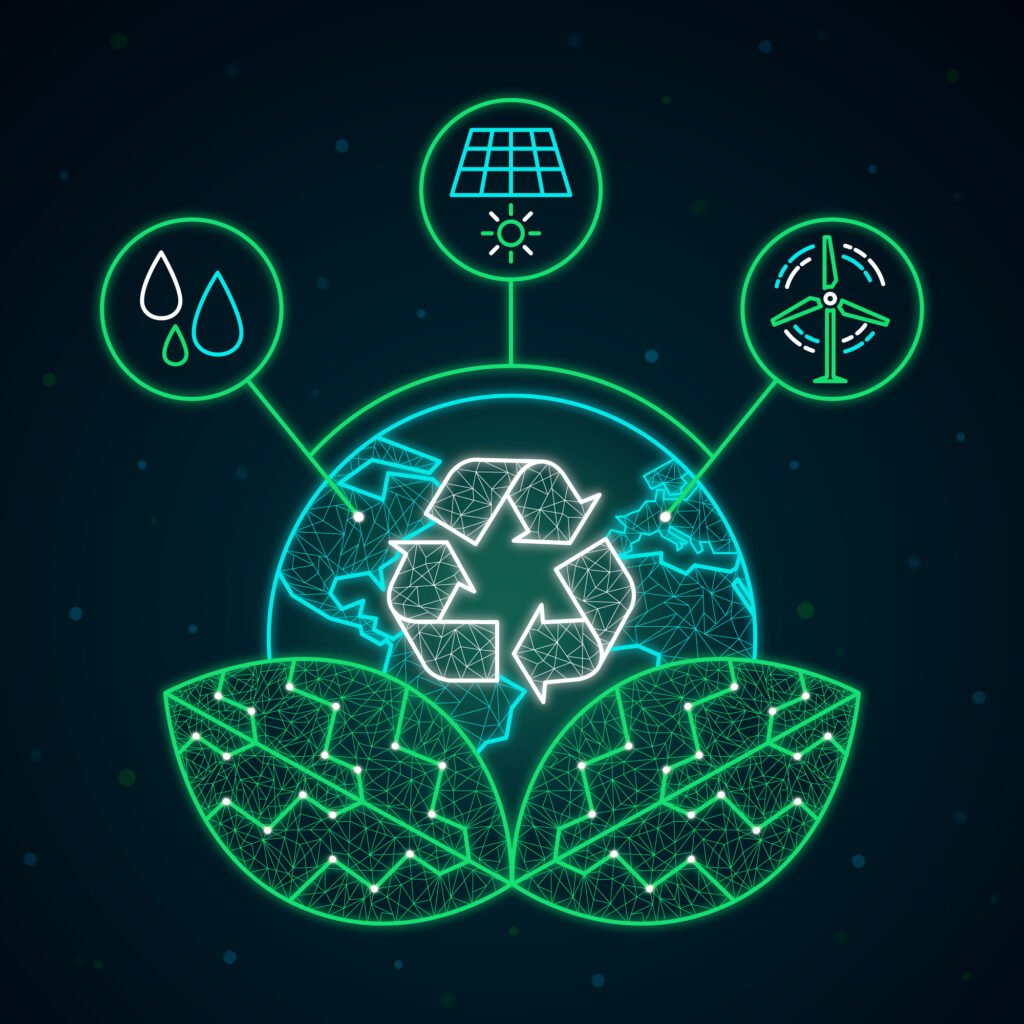Research & Case Studies
- Home
- Research & Case Studies
Research & Case Studies

Undertake Bio Assessments
Welcome to Carbonoc Climate Initiative Bio Assessments
At Carbonoc Climate Initiative, we specialize in conducting comprehensive biodiversity assessments to evaluate and monitor the health and diversity of ecosystems. Our bio assessments provide valuable insights into the ecological condition of natural habitats, helping clients make informed decisions for conservation and sustainable land management.
Our Services
We conduct detailed biodiversity surveys using scientifically proven methodologies to identify and document flora, fauna, and ecosystem characteristics within specific regions or habitats.
Our team monitors ecological indicators over time to assess changes in biodiversity, ecosystem health, and habitat quality. We provide ongoing monitoring services tailored to your conservation goals.
We assess habitat suitability and integrity to understand the ecological needs of specific species and identify potential conservation actions to enhance habitat quality.
We analyze potential threats to biodiversity, such as habitat loss, invasive species, pollution, and climate change impacts, to develop strategies for mitigating risks and protecting vulnerable species.
Environmental Impact Assessment
Our Services
At Carbonoc Climate Initiative, we specialize in providing comprehensive Environmental Impact Assessment (EIA) services to evaluate and mitigate the potential environmental impacts of proposed projects and developments. Our EIAs are designed to ensure sustainable practices and compliance with environmental regulations, fostering responsible development and conservation of natural resources.
What is Environmental Impact Assessment (EIA)?
Environmental Impact Assessment (EIA) is a systematic process of evaluating the potential environmental consequences of a proposed project or development before it is carried out. The primary objective of EIA is to identify, predict, and assess the likely environmental impacts and risks associated with the project, as well as to propose measures to mitigate adverse effects.

Our EIA Services
We assist clients in determining whether an EIA is required for their project and define the scope and objectives of the assessment based on project characteristics and regulatory requirements.
Our team conducts comprehensive baseline studies to assess the existing environmental conditions of the project area, including air quality, water resources, soil quality, biodiversity, and socio-economic aspects.
We identify and evaluate potential environmental impacts associated with the project, considering factors such as land use changes, air and water pollution, noise, habitat disturbance, and cumulative effects.
Based on the EIA findings, we recommend practical and effective mitigation measures to minimize adverse environmental impacts. We develop Environmental Management Plans (EMPs) to guide project implementation and ensure compliance with environmental standards.
We facilitate stakeholder consultations and public participation processes to gather input, address concerns, and promote transparency throughout the EIA process.
Our EIAs are conducted in accordance with national and international environmental regulations and standards, ensuring legal compliance and permitting requirements are met.
Natural Resources Management

Welcome to Natural Resources Management Services
At Carbonoc Climate Initiative, we specialize in providing innovative and sustainable solutions for natural resources management. Our goal is to assist clients in optimizing the use and conservation of natural resources while promoting environmental stewardship and ensuring long-term sustainability.
What is Natural Resources Management?
Natural Resources Management (NRM) encompasses the responsible use, conservation, and restoration of natural resources, including land, water, forests, minerals, wildlife, and ecosystems. Effective NRM strategies aim to balance environmental, economic, and social considerations to achieve sustainable development.
Our NRM Services
We conduct comprehensive assessments to evaluate the condition and potential of natural resources, identifying opportunities and challenges for sustainable management. Our team develops tailored management plans to optimize resource utilization and conservation.
We assist clients in developing land use plans that optimize land productivity while minimizing environmental impacts. Our services include ecosystem restoration, habitat conservation, and sustainable agriculture practices.
Our experts specialize in water resources management, including watershed management, water quality assessment, and water conservation strategies. We work with stakeholders to develop integrated water management plans that address competing needs and promote water security.
We offer forestry and wildlife management services aimed at conserving biodiversity, promoting sustainable forestry practices, and managing wildlife habitats. Our team develops forest management plans, conducts habitat assessments, and implements conservation initiatives.
We assist clients in adapting to climate change impacts through resilience-building measures, such as climate-smart agriculture, coastal zone management, and climate-resilient infrastructure planning.
We prioritize stakeholder engagement and community involvement in NRM projects. We facilitate participatory approaches, capacity-building workshops, and awareness campaigns to empower local communities in natural resources management.
Wetland Study Report
Welcome to Our Wetland Study Report Services
At Carbonoc Climate Initiative, we specialize in conducting comprehensive wetland study reports to assess the ecological health, functions, and values of wetland ecosystems. Our reports provide valuable insights for landowners, developers, government agencies, and conservation organizations to inform decision-making and ensure sustainable management of wetland resources.
What is a Wetland Study Report?
A wetland study report is a detailed assessment of wetland areas, encompassing scientific data collection, analysis, and interpretation to understand the ecological characteristics and significance of wetlands. These reports serve as critical tools for land use planning, regulatory compliance, and conservation initiatives.

Our Wetland Study Report Services
We conduct baseline assessments to characterize wetland ecosystems, including vegetation surveys, hydrological assessments, soil analysis, and wildlife inventories. Our team evaluates wetland functions such as flood control, water purification, and habitat provision.
We assist clients in complying with wetland regulations and permitting requirements by conducting wetland delineations, jurisdictional determinations, and impact assessments for proposed development projects.
We develop wetland restoration and mitigation plans to enhance degraded wetlands or offset impacts from development activities. Our experts design sustainable solutions to restore wetland functions and biodiversity.
We implement wetland monitoring programs to track changes in wetland conditions over time and assess the effectiveness of management actions. Our team provides recommendations for adaptive management strategies based on monitoring results.
We engage stakeholders, including landowners, government agencies, NGOs, and local communities, throughout the wetland study process to gather input, address concerns, and foster collaboration in wetland conservation and management.
Eco-system Analysis

At Carbonoc Climate Initiative, we specialize in conducting comprehensive ecosystem analyses to assess the structure, function, and dynamics of ecological systems. Our ecosystem analyses provide valuable insights for land managers, conservationists, researchers, and policymakers to inform decision-making and promote sustainable ecosystem management.
What is Ecosystem Analysis?
Ecosystem analysis is a scientific approach to studying ecological systems, including interactions among living organisms (biotic factors) and their physical environment (abiotic factors). It involves assessing ecosystem components, processes, and services to understand ecosystem health, resilience, and vulnerability to environmental changes.
Our Ecosystem Analysis Services
We conduct detailed assessments to characterize ecosystems, including vegetation surveys, wildlife inventories, soil analysis, and hydrological evaluations. Our team assesses ecosystem structure, species diversity, and habitat quality.
We analyze ecosystem services provided by natural landscapes, such as carbon sequestration, water purification, pollination, and recreational opportunities. Our assessments quantify the economic and ecological value of ecosystem services.
Based on ecosystem analysis findings, we develop land use and management recommendations to optimize ecosystem health and functionality. Our experts prioritize conservation measures and sustainable practices to enhance ecosystem resilience.
We assess the impact of climate change on ecosystems, identifying vulnerabilities and developing adaptation strategies to mitigate risks and promote ecosystem sustainability.
We engage stakeholders, including landowners, community groups, government agencies, and NGOs, throughout the ecosystem analysis process. Our team facilitates collaborative approaches to ecosystem management and conservation planning.
Soil Remediation
Welcome to Soil Remediation Services
At Carbonoc Climate Initiative, we specialize in providing innovative and effective soil remediation solutions to address contaminated soil and restore environmental quality. Our soil remediation services are tailored to meet the unique needs of industrial sites, brownfields, agricultural lands, and urban environments, ensuring safe and sustainable remediation practices.
What is Soil Remediation?
Soil remediation is the process of restoring contaminated soil to a clean and healthy state by removing, treating, or neutralizing pollutants. It involves assessing soil contamination levels, implementing remediation techniques, and monitoring soil quality to mitigate environmental risks and protect human health.

Our Soil Remediation Services
We conduct comprehensive site assessments and soil testing to identify the extent and types of contaminants present in the soil. Our experts analyze soil samples in laboratories to determine appropriate remediation strategies.
Based on site assessment findings, we develop customized remediation plans tailored to specific contaminants and site conditions. Our team selects appropriate remediation technologies and techniques, such as excavation, soil vapor extraction, bioremediation, or chemical treatment.
We execute remediation activities using state-of-the-art equipment and methods to effectively remove or neutralize contaminants in the soil. Our experienced technicians ensure compliance with environmental regulations and safety standards during remediation operations.
Following remediation activities, we conduct post-remediation monitoring to assess soil quality and verify the effectiveness of remediation efforts. Our monitoring programs ensure that soil quality meets regulatory standards and is safe for intended land use.
We collaborate with stakeholders, including property owners, regulatory agencies, and community members, throughout the soil remediation process. Our team facilitates communication and ensures compliance with environmental regulations and permitting requirements.
GHG Emission Inventory Verification

Welcome to GHG Emission Inventory Verification Services
At Carbonoc Climate Initiative, we specialize in providing comprehensive greenhouse gas (GHG) emission inventory verification services to help organizations accurately measure, report, and verify their carbon footprint. Our verification services are designed to support sustainability initiatives, enhance transparency, and ensure compliance with carbon reporting standards.
What is GHG Emission Inventory Verification?
GHG emission inventory verification involves assessing the accuracy and completeness of an organization’s reported greenhouse gas emissions data. This process verifies the reliability of emission calculations, data sources, and reporting methodologies, ensuring credibility and transparency in carbon footprint assessments.
Our GHG Emission Inventory Verification Services
We collaborate with clients to develop verification plans tailored to their specific reporting requirements and objectives. Our experts review emission sources, data collection processes, and reporting methodologies to ensure compliance with relevant standards (e.g., ISO 14064, GHG Protocol).
Our team conducts thorough data verification and validation procedures to assess the accuracy, completeness, and consistency of GHG emission data. We verify emission calculations, conversion factors, and activity data to identify any discrepancies or errors.
We perform on-site visits and audits to verify emission sources, equipment, and operational practices. Our auditors interview staff, review records, and inspect facilities to validate reported data and identify opportunities for emission reduction.
Following data verification, we prepare comprehensive verification reports detailing findings, observations, and recommendations. Our reports provide stakeholders with transparent insights into the credibility and reliability of GHG emission data.
We assist clients in achieving compliance with regulatory requirements and obtaining third-party certification for their GHG emission inventories. Our verification services support organizations in demonstrating environmental accountability and achieving sustainability goals.
Why Choose Us
Our team comprises experienced ecologists and environmental scientists with specialized knowledge in biodiversity assessment, EIA assessment, natural resources management, wetland ecology, regulation & management. Our team includes accredited GHG verification professionals with extensive experience in environmental auditing and carbon accounting.
We tailor our assessments to meet the unique needs of each project, ensuring comprehensive data collection and analysis aligned with project objectives.
We provide actionable insights based on scientific data and ecological principles, empowering stakeholders to make informed decisions for effective conservation and land management.
We are committed to promoting sustainable development practices and responsible stewardship of natural resources, integrating environmental considerations into project planning and decision-making.

